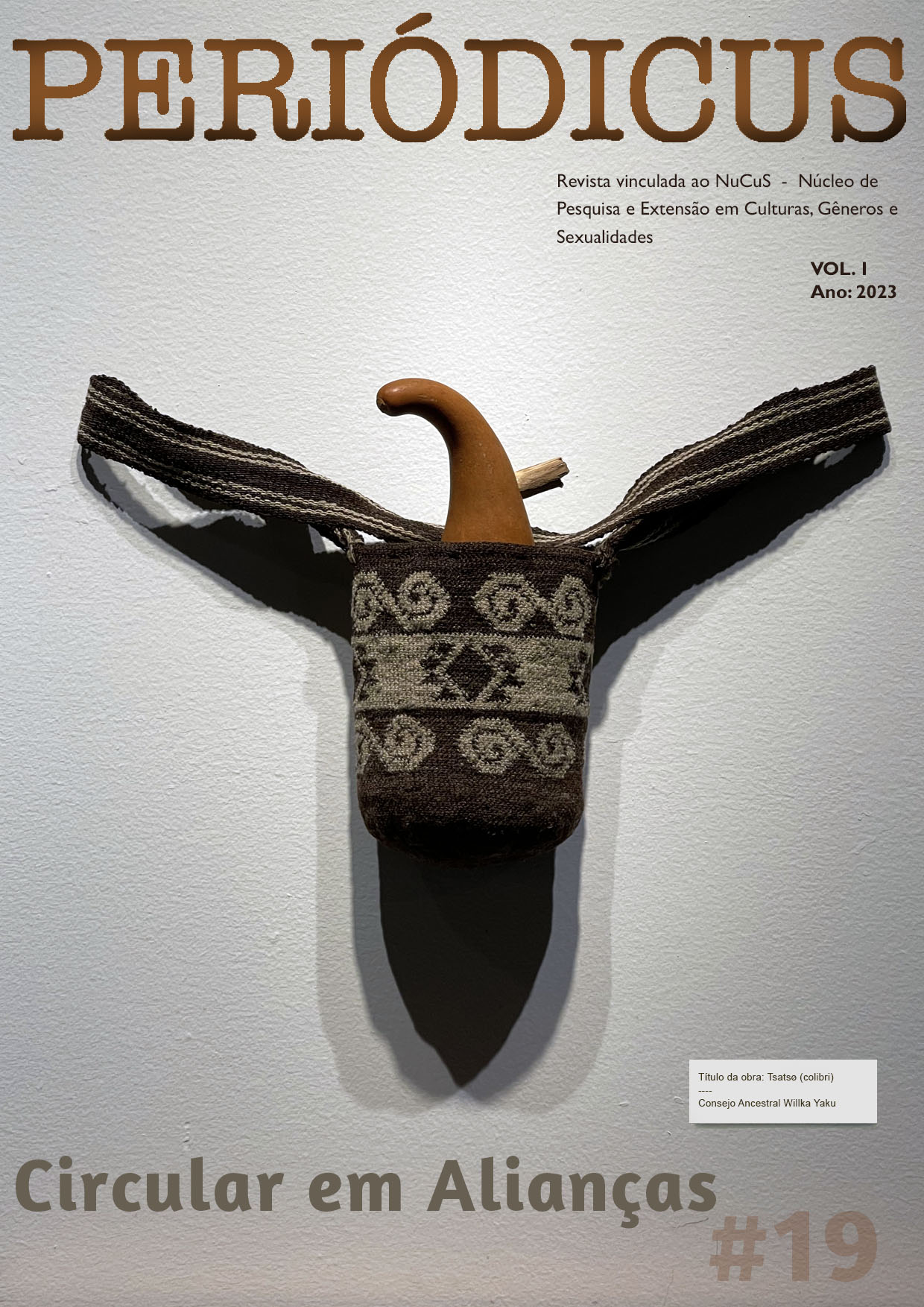O direito à Reparação Integral na bacia do Rio Paraopeba
uma crítica ao modelo racista e cisheteropatriarcal de mineração
DOI:
https://doi.org/10.9771/peri.v1i19.53012Resumo
O presente artigo propõe um debate crítico sobre o acesso à Reparação Integral em casos de crimes-desastres de grandes proporções. Quatro autoras se valem do pensamento situado para analisar o modelo posto de reparação ao crime do rompimento da barragem da Vale S.A. em Brumadinho, Minas Gerais, ocorrido em 25 de janeiro de 2019. Realizamos a tarefa através das lentes interseccionais do feminismo negro, do racismo ambiental, de território e territorialidade e dos feminismos decolonial e comunitário para entender de que maneira a matriz de dominação interseccional ingere na participação e acesso a direitos das camadas mais precarizadas das populações atingidas. Concluem que o modelo racista e cis-heteropatriarcal de mineração/desenvolvimento que gera danos e perdas vinculadas à transversalidade das opressões históricas, considerando a interseccionalidade das identidades, dos marcadores sociais e corporais, interfere no processo de reparação. Por isso, a Reparação Integral precisaria estar mais atrelada à compreensão das especificidades dos diferentes segmentos sociais atingidos no acesso aos seus direitos.
Downloads
Downloads
Publicado
Como Citar
Edição
Seção
Licença
Copyright (c) 2023 Ana Alvarenga de Castro, Caena Rodrigues Conceição, Jéssica Cristina Alvaro de Oliveira, Lídia Carlos Vieira

Este trabalho está licenciado sob uma licença Creative Commons Attribution-NonCommercial 4.0 International License.
Autores que publicam nesta revista concordam com os seguintes termos:
Autores mantêm os direitos autorais e concedem à revista o direito de primeira publicação, com o trabalho simultaneamente licenciado sob Licença Creative Commons Attribution Noncommercial que permite o compartilhamento do trabalho com reconhecimento da autoria e publicação inicial nesta revista, sendo vedado o uso com fins comerciais.
Autores têm autorização para assumir contratos adicionais separadamente, para distribuição não-exclusiva da versão do trabalho publicada nesta revista (ex.: publicar em repositório institucional ou como capítulo de livro), com reconhecimento de autoria e publicação inicial nesta revista.
Autores têm permissão e são estimulados a publicar e distribuir seu trabalho online (ex.: em repositórios institucionais ou na sua página pessoal) a qualquer ponto antes ou durante o processo editorial, já que isso pode gerar alterações produtivas, bem como aumentar o impacto e a citação do trabalho publicado (Veja O Efeito do Acesso Livre).








